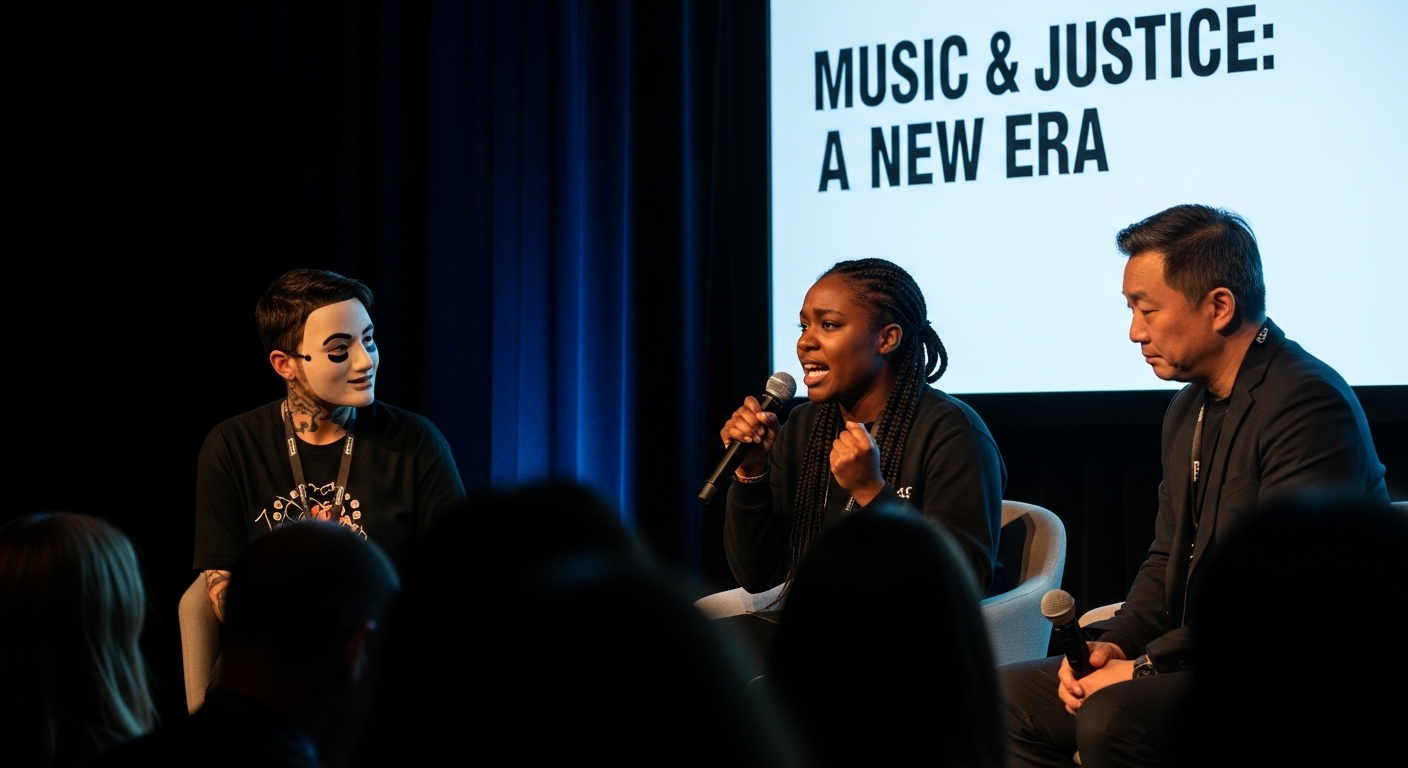The music industry, a vibrant tapestry woven with creativity and cultural expression, is undergoing a profound transformation. More than just a source of entertainment, music serves as a powerful catalyst for social change, reflecting and shaping societal values. In 2025, understanding the shifts within the music industry requires a keen awareness of the social justice movements it amplifies and the innovative strategies it adopts. This blog post delves deeper than surface-level headlines, exploring the intricate connections between music, activism, and industry evolution.
From artists leveraging their platforms to advocate for equality to the industry grappling with issues of representation and fair compensation, the landscape is constantly evolving. This exploration will cover the surge of music as a tool for protest, the industry’s attempts to address historical inequities, the rising prominence of diverse voices, and innovative approaches to artist compensation. Join us as we explore these pivotal aspects shaping the future of music.
Music as a Vehicle for Social Justice
Music has always been intertwined with social movements, serving as a potent tool for expressing dissent, fostering solidarity, and driving change. In 2025, this role is more critical than ever. Artists are increasingly using their platforms to address pressing social issues, from racial injustice and climate change to LGBTQ+ rights and gender equality. Through powerful lyrics, evocative melodies, and impactful visuals, musicians are amplifying marginalized voices and inspiring collective action. The rise of social media has further amplified this impact, enabling artists to connect directly with audiences and mobilize support for various causes.
Consider the impact of protest anthems that resonate deeply with ongoing movements. These songs become rallying cries, uniting people under a common banner and providing a soundtrack for change. Beyond anthems, artists are also engaging in collaborative projects, benefit concerts, and awareness campaigns to raise funds and support for organizations working on the front lines of social justice. The effectiveness of music as a tool for social justice lies in its ability to transcend cultural and linguistic barriers, fostering empathy and understanding across diverse communities. As one activist noted, "Music speaks where words are unable to explain" [hypothetical quote].
Moreover, the current generation of musicians are not merely performers but active participants in the movements they champion. They are using their influence to educate their fans, advocate for policy changes, and challenge systemic inequalities. This level of engagement demonstrates a deep commitment to social justice, solidifying music’s role as a driving force for positive change.
Industry Efforts Towards Equity and Representation
The music industry, while historically plagued by inequities, is slowly beginning to address issues of representation and fairness. Efforts are underway to create a more inclusive environment for artists from diverse backgrounds, ensuring that their voices are heard and their contributions are recognized. Record labels, streaming platforms, and industry organizations are implementing initiatives to promote diversity in hiring, artist development, and content creation. These initiatives aim to dismantle systemic barriers that have historically marginalized artists from underrepresented communities.
One significant area of focus is addressing the gender gap in the music industry. Organizations are working to increase the representation of women and non-binary individuals in all areas, from executive positions to songwriting and production roles. Mentorship programs, networking opportunities, and advocacy campaigns are helping to empower aspiring female and non-binary professionals, creating a more equitable playing field. Similarly, efforts are being made to promote racial and ethnic diversity within the industry. Record labels are actively seeking out and supporting artists from diverse cultural backgrounds, ensuring that their music reaches a wider audience. Streaming platforms are also playing a role by curating playlists and highlighting artists from underrepresented communities.
However, challenges remain. Systemic biases and ingrained power structures continue to perpetuate inequalities within the music industry. True equity requires a sustained commitment to dismantling these barriers and creating a truly inclusive environment where all artists have the opportunity to thrive. As one industry insider stated, "We need to move beyond performative allyship and take concrete actions to create lasting change" [hypothetical quote].
The Rise of Diverse Voices and Genres
The growing emphasis on diversity and inclusion has led to the rise of diverse voices and genres within the music industry. Artists who were once marginalized are now gaining mainstream recognition, bringing fresh perspectives and innovative sounds to the forefront. This shift is not only enriching the musical landscape but also challenging traditional notions of what constitutes popular music. Genres that were once relegated to niche audiences are now finding wider appeal, reflecting a growing appreciation for cultural diversity.
For example, the increasing popularity of Afrobeats, Latin music, and K-pop demonstrates the global reach and influence of diverse musical styles. These genres are not only topping charts but also influencing mainstream music trends, creating a vibrant and dynamic musical ecosystem. The rise of independent artists and labels has also played a significant role in amplifying diverse voices. These artists often operate outside the traditional music industry structure, allowing them to maintain creative control and connect directly with their fans. Streaming platforms have further democratized the music industry, providing a platform for independent artists to reach a global audience without the need for major label support.
The celebration of diverse voices extends beyond genre, encompassing artists from various cultural backgrounds, gender identities, and sexual orientations. This inclusivity fosters a more authentic and representative musical landscape, reflecting the rich tapestry of human experience. As more diverse artists gain recognition, they inspire others to pursue their dreams and challenge the status quo. "The more we see ourselves represented in music, the more empowered we become," stated a rising artist [hypothetical quote].

